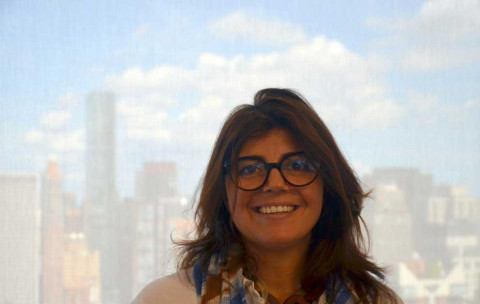
The National Committee for Coordinating Information and Public Opinion held their first workshop last week. Council of Ministers
The National Committee for Coordinating Information and Public Opinion held its first consultative workshop last week. The event acted as a forum to gather key input from stakeholders, while also discussing challenges and sharing positive experiences with trainees from various state institutions, in order to improve the flow of information to the public.
The workshop, held at the Office of the Council of Ministers, was chaired by Svay Sitha, Senior Minister in charge of Special Missions and chairman of the national information committee. It was attended by about 200 spokespersons, information officials and social media officers from the across the country, according to a Government Spokespersons Unit (RGSU) statement.
Honorary speakers included Minister of Information Neth Pheaktra and RGSU chief Pen Bona.
The statement said Sitha discussed the important role of information in the development process of the country, and the key responsibility of state media to maintain peace, as well as political and social stability. This is especially crucial in terms of managing information and responding to false accusations or misunderstandings, and offering elaboration and explanations that will ensure the public learn the truth.
At the same time, he also raised concerns about the modernisation of information technology in the digital age, and how it can affect the spread of information and public opinion. He offered the advancement of artificial intelligence (AI) as one example of a challenge which faces Cambodia as well as other countries around the world, including the US and Europe, and requires increased attention and vigilance.
“Under the initiative of Prime Minister Hun Manet, the National Committee for Coordinating Information and Public Opinion was established as a mechanism to facilitate, collaborate, co-operate and strengthen standards of performance, as well as issue recommendations to orient the work of information and public opinion, in order to create a national movement for the peace of the people,” said Sitha.
He also stressed the need to establish a One Window Service for information and public cooperation between the national committee and all state institutions and provincial authorities, in order to enable them to reach common goals.
Pheaktra, in his capacity as first vice-president of the National Committee for Coordinating Information and Public Opinion, urged the workshop participants to strengthen information and public opinion mechanisms by mobilising their resources as a group, using one voice and one language to achieve their common goals.
“Information and public opinion work is an essential part of the psychology and management of people’s minds in the context of the development of information technology. All ministries and institutions need to pay closer attention to these important mechanisms, which are a common force for the task of sharing accurate, timely information to the public,” he said.
Bona, who is also permanent vice-president of the national committee, explained that the body was established to ensure that the information provided to the public is effective and meaningful, and that spokespersons at both the national and sub-national levels are collaborating, sharing and monitoring information, and responding to journalists and the public effectively.
He instructed officials from all state institutions to monitor people’s opinions or suggestions, as well as respond promptly to enquiries, especially via social media.
“In the past, it was suggested that spokespeople only spoke in defence, not the truth. I want to change this way of thinking. Spokespeople should tell the truth to defend the government. If the government is doing a lot of work, but there is some exaggerated or slanderous information circulating, spokespeople should use facts to neutralise false information and explain the truth to the public,” he said.
Nop Vy, executive director of the Cambodian Journalists Alliance (CamboJa), said the national committee should focus on the broad dissemination of government information, in response to the need for quality information from the public.
“This response should focus on the basics of respect for human rights, freedom and access to information. At the same time, the committee should focus on promoting a speedy access to information law and ensuring the space for information dissemination from all walks of life,” he added.





















